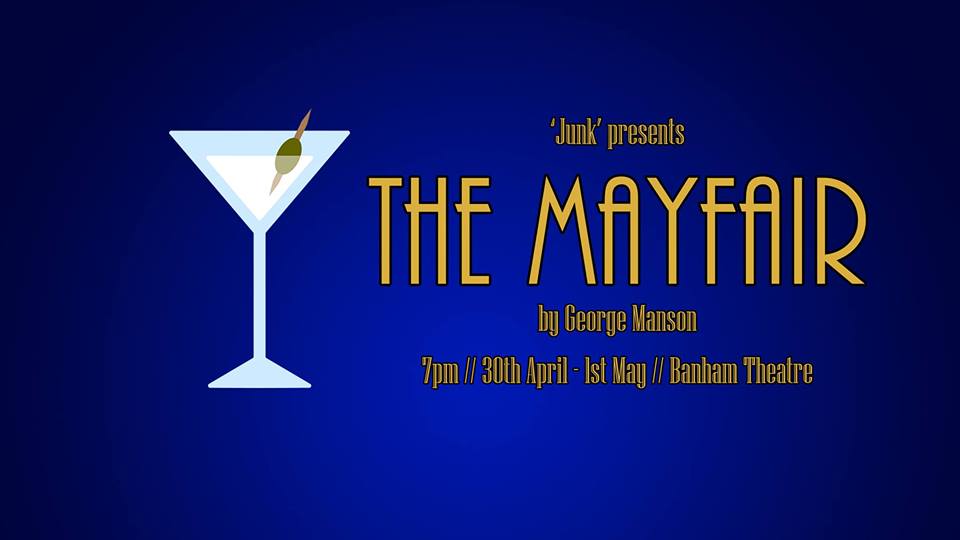On April 30th and May 1st, student theatre group ‘Junk’ presented ‘The Mayfair’ by writing for performance and publication student George Manson. The play opens on a note of slow ambience at an empty bar, but before long explodes into life as its characters explore ideas of impermanence, romance, and the subjectivity of art. Throughout the play, the audience is introduced to multiple couples at the same bar. These couples are used to explore the play’s themes from slightly different angles as they come together and fall apart throughout the production.
It takes more than just good writing to make two characters compelling, and as the play’s characters pair off with one another; actors Olivia Moon and Joel David did an incredible job of jumping into them. With only a cast of two, both actors transitioned between their parts with subtlety and aplomb, creating clear divisions between characters in mere seconds. Furthermore, the chemistry between those characters seemed not only so natural between each couple but also so unique between the individual pairings.
In a play whose characters are foils to one another and whose main tensions and intrigues rely upon the chemistry between them, the play’s crowning moment comes at a twist towards the end. It’s only as the audience are introduced to the play’s final couple that the realisation begins to hit; the play has two characters, not eight.
Throughout the show, George Manson relies on the convention of actors playing multiple characters and quick scene changes to build the impression that the audience is witnessing many different characters. But through manipulating these conventions it eventually becomes apparent that this is not the case. Instead the setting of the bar becomes another stage on which the only two characters in the play are able to project further characters of their own.
In the almost “Black Mirror” style twist, eight characters become two and all the themes of love, impermanence, fear and failure come crashing down around them. Small details present throughout the play such as passing remarks about the failure of marriage and the fear of growing apart become compounded in the play’s final moments, and as the “stage” of The Mayfair bar is destroyed, the characters become detached from their personas, becoming ‘real people’ for the first time.
When reviewing a play written by a student, there can be a temptation to end on lines such as “good for a first attempt” or “a fantastic effort for a student”. However, “The Mayfair” provides no such temptation to a reviewer. The play is carefully crafted and was expertly acted out to set an incredibly high bar for any student-written plays that follow it. The play is a melancholic mix of romance, heartbreak, fear, and dance numbers that come together with an immensely satisfying cohesion. Its run may be over, but I’m sure I’m not alone in looking forward to whatever “Junk” and George Manson have to offer us next.
By Matthew Jeffery

